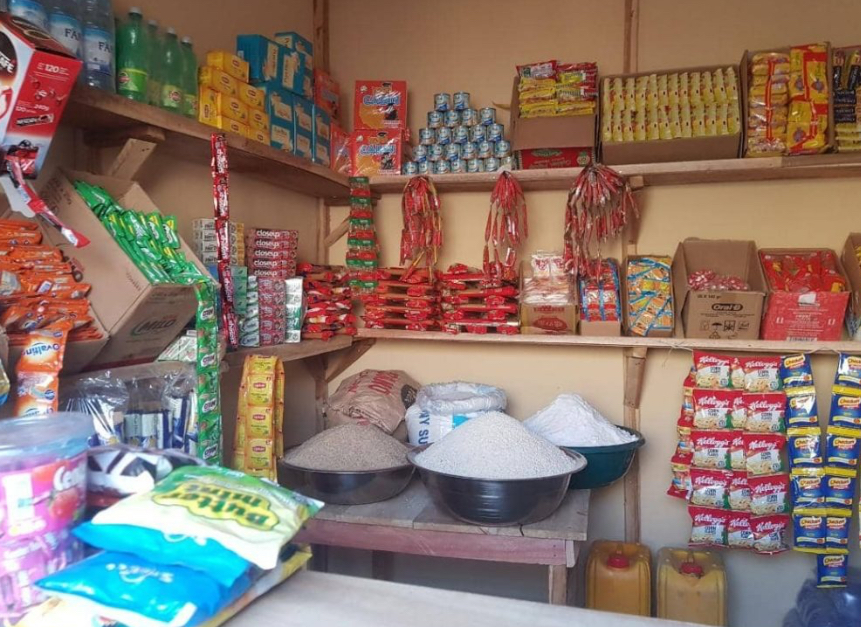There seems to be some form of relief at the moment for Nigerians, especially those in the low to middle income bracket, who have for some months now been affected by the nationwide food price hike, driven by the sharp inflation and economic pressures across the nation.
In recent months, Nigeria’s inflationary figures have surged astronomically, rising to an all-time high in two decades, to 29.90% in January 2024; with a corresponding 2.64% headline inflation, according to figures released by the National Bureau of Statistics (NBS). Food inflation also rose by 3.21%, with core inflation hitting 2.24%, while urban and rural inflation climbed to 2.72% and 2.57 % respectively, the NBS data showed.
But according to latest market surveys carried out last week around popular markets in the country, there seems to be a reduction in the prices of some food items. Among them is noodles, especially the popular Indomie Instant Noodles.
For instance, a 40-pack carton of Indomie Regular Chicken 70g, which sold for N10,650 now sells for N8,900. Indomie standard pack 100g, which sold for N15,000 now go for N12,300 per carton. In the same vein, the 40-pack carton of Indomie Super Pack Chicken Flavor 120g which sold for N17,950 now sells for N14,700
Other food items whose prices have fallen in the markets surveyed include sugar, rice, beans, semo, spaghetti and macaroni. A 50kg BUA sugar now costs N84,000, a Dangote 50kg sugar goes for N88,000, Stallion Long grain rice which sold for N88,000 now sells for N86,000, while the price for short grain rice fell to N78,000 from N80,000. Fifteen pints of Honeybeans which sold for N78,000 now sells for N75,000, while 32 pints of brown beans now sells for N155,000 as against the previous N165,000.
Confirming this, a wholesale and retail dealer of noodles range of products at the popular Wuse Market, Mrs Debola Tairu, particularly noted that the prices of Indomie Noodles products have come down. “This is very good from Indomie, and I hope other products’ will reduce their prices too”, she said.
Umaru Bello, a roadside fast-food and beverage seller fondly called ‘Mai shai’ at the Kaduna Central Market, also confirmed that the price of Indomie Noodles has come down appreciably, to the delight of his consumers. “Indeed, the price of Indomie has significantly reduced, and this is good for my kind of business, as it had led to more and more of my customers returning”, he remarked enthusiastically.
Analysts believe that the trend will be boosted if government comes through with its promises to work towards arresting the rising cost of food prices around the country. It would be recalled that the Federal Government had last month revealed that it has put in place proactive measures to help tackle food inflation in the country, having set up a Presidential Committee on Emergency Food Intervention following the protests that took place in several cities around the country.
According to a statement issued by the Minister of Information and National Orientation, Mohammed Idris, some of these measures include unlocking the foods that are available in most of the storage facilities (National Food Reserves) around the country. The government, he said, is also talking to major millers and commodity traders in the country to see what is available in their stores.
In a related development, the President, Bola Ahmed Tinubu has ordered the Nigeria Customs Service to return all seized food items to their owners. The items were reportedly confiscated for contravening import and export rules are currently stockpiled at the various Customs warehouses in the country.
Disclosing this at the weekend, the Comptroller General of Customs, Adewale Adeniyi, said that the President has also directed that the returned food items must be sold in Nigerian markets. He said that the country currently has an Export Prohibition Act that prohibits the exportation of items such as maize, millet, yam, beans and sorghum, and said that the law will reviewed when the nation becomes self-sufficient in food production.






